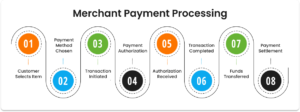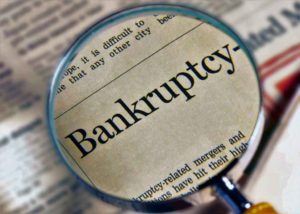Understanding the characteristics of accruals is undoubtedly one of the most important research topics in its field financial science. The primary role of finance is to provide information that is useful to investors. The accounting of accruals is one of the ways to achieve this. Accruals accounting focuses on the categorization and measurement of a company’s claims and liabilities, with these reflecting their non-monetary changes.
The difference between cash and accrual accounting lies in the time when sales and purchases/expenses are recorded in the company’s books. Cash accounting recognizes income and expenses only when cash changes hands like paystubs. In contrast, accrual accounting recognizes revenue when the sale is made and priced (rather than when payment is made). Similarly, expenses are recognized when incurred and invoiced (rather than when paid).
Cash Basis Accounting
Cash accounting is simple: it’s based on cash, meaning when money is received you recognize it as revenue, and when you spend it you recognize it as expense. Receipts are equal to sales. Payments are equal to expenses (assuming they are business expenses).
Cash accounting is relatively easy, but it can cause you problems. If a business has a cash basis of accounting and made year-end invoicing, all income will be taxed when it is received in the following year. This might be acceptable for a December 31 invoice, but what about an invoice from September that the customer avoids paying until February of the following year? Since the payment will be so late, you may have forgotten that this is New Year’s income.
Αccrual basis accounting
Accrual accounting is a little different. According to this revenue is recognized when invoiced and expenses are recognized when you receive an invoice. The actual date of receipt or disbursement of cash is not taken into account except in your cash flow planning. Over the course of the year this doesn’t make a huge difference. You get a bill in January and pay it in February, or a customer pays you in April for an invoice you sent in March.
- Input
In accrual accounting, the time of realization of the income is not the same as the time of its collection. In some cases, revenue is first realized and then collected (eg sales of goods on credit), while in others it is first collected and then realized (eg advance collection of tuition fees).
Example:
In construction companies, the revenue from the partial execution of the project is realized first and then the project is delivered. In contrast, in commercial enterprises that sell goods in installments, first the goods are delivered and the revenue is realized and later, when the installment is collected, the corresponding part of the revenue is recognized and recorded in the books.
Later timing also characterizes the realization and recognition of income from the use of elements of the company’s Assets by third parties. Thus, rental income is realized every day, but for practical purposes it is recognized and recorded in the books at the end of the month. The same is the case with interest income (credit interest) which is realized every day, but is recognized (accounted for) at the end of the interest period. Dividend income is recognized when the distribution of profits is announced by the companies in which the company is a shareholder.
- Output
In accrual accounting, the time when the expenses are incurred is separated from the time of their payment. That is, it is possible to pay the expenses first and then to incur them, or first to incur them and then to pay them.
Example:
There are expenses that are not directly related to the generation of specific income such as depreciation, rent, debt interest, management salaries, fees of external auditors and legal advisors.
The time of their realization is the accounting year in which the company uses its Assets, third-party services or third-party Assets. Also, the costs of producing products are not directly linked to the realization of income, because they are first converted into an element of the circulating Assets (e.g. product inventory) and then when the products are sold they are transformed into the cost of goods sold. It is the latter that is ultimately linked to the income from the sale.
Prepaid expenses are not expenses, but claims against third parties to allow the business to use their services or their Assets, for which it prepaid. When a business prepays a lawyer, it has a claim against the lawyer to offer it the corresponding services. Its receivable is converted into a fee expense as the services are rendered. The Platform paystubs 1099 operate in such a way.
However, fluctuations at the beginning or end of the year can affect your tax liability. For example, let’s say your company uses accrual accounting and on December 31 you send some invoices totaling €20,000. There is no way you will collect this money within the year, but with this pricing you are showing that you have earned this income and so the entire €20,000 is taxable in the current year. If the year was bad in terms of revenue, maybe you don’t mind that. But if the year was rich in income then the last thing you want is more income! This pricing means that the tax is due in the current year and not next year. More taxes and earlier.
None of the above accounting methods are very difficult to deal with, but the right infrastructure and tax planning is required. If you only use your bank account balance as a barometer for your taxes, for example, then you could be in for some nasty surprises come spring when you file your tax return. That is why proper planning and possibly expert advice is needed. Without them you could pay high and unnecessary taxes.
The entrepreneur should consult his tax advisor on which accounting method to follow in combination with the type and legal entity of his company. However, it is noted that the Greek Uniform Accounting Scheme obliges the company to keep the Accounting of accrued income/expenses.
In a typical small business, the entrepreneur entrusts the bookkeeping to his Accountant who makes the accounting entries usually a time lag. But it is doubtful whether the entrepreneur has the readiness to immediately update his cash planning to avoid surprises, because he does not often return to the books to check when sales will be received or expenses will be paid. So, regardless of the accounting method that the company follows, timely cash planning is a key concern for the entrepreneur.





Be First to Comment